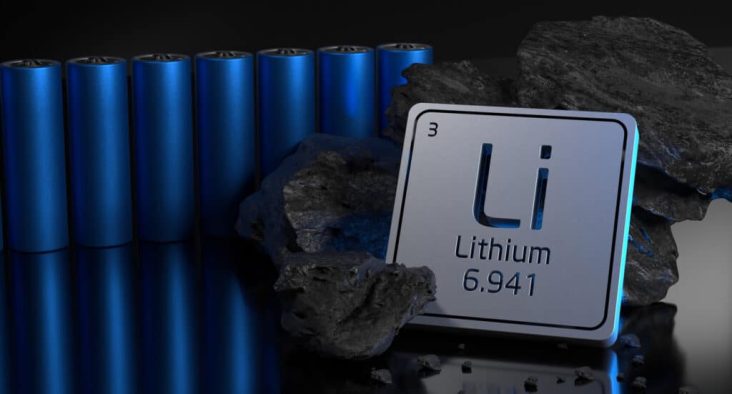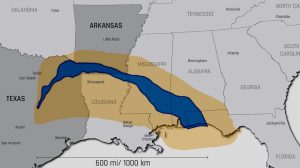Lithium mining compensation structure approved by state officials
by May 28, 2025 4:59 pm 940 views

State officials on Wednesday (May 28) approved a lithium compensation plan as part of an application from Standard Lithium subsidiary SWA Lithium for its planned mining in the Smackover Formation in southwest Arkansas.
The rate plan, approved by the Oil and Gas Commission of the Arkansas Department of Energy and Environment, is for lithium to be mined from the Reynolds Brine Production Unit, which covers more than 20,000 acres in south Arkansas, according to a statement from the department.
The plan approved is for a lithium payment of 2.5% of a “lithium carbonate equivalent” in addition to a brine fee already established by Arkansas law. The department did not provide an estimate on how much annual revenue the 2.5% rate could generate for the state.
“Lithium brine extraction in Arkansas is unique – it enables Arkansas to unleash its energy and critical mineral potential in a way that results in minimal surface impact to the Natural State,” Department Secretary Shane Khoury said in a statement. “The Commission’s approval of SWA’s proposal as fair and equitable compensation signifies a huge step forward for Arkansas’s lithium industry.”
The department also said the Commission’s Office of State Geologist and the United States Geological Survey released a survey in October 2024 estimating lithium concentrations in south Arkansas at 5 to 19 million tons. Standard Lithium has said it estimates a $1.3 billion capital expenditure with the mining operation.
“Throughout this process, all parties wanted a payment structure that is fair, consistent, and competitive, and today’s approval accomplishes this goal,” said Commission Chairman Jerry Langley.

On Sept. 20, 2024, Vancouver, Canada-based Standard Lithium and Stavangar, Norway-based Equinor announced that a jointly-owned U.S. subsidiary, SWA Lithium, was selected for up to $225 million from the U.S. Department of Energy (DOE).
At the time, the selection was one of the largest ever awarded to a U.S. critical minerals project and was part of the second wave of funding under the Infrastructure Investment and Jobs Act (IIJA) aimed at expanding domestic manufacturing of all segments of the battery supply chain and increasing production of critical minerals in the U.S. None of Arkansas’ Congressional delegation voted in favor of the IIJA.
Arkansas has received $7.896 million from brine extraction tax revenue since 2003, according to the Arkansas Department of Finance and Administration (DFA). Of that, $4.315 million has been directed to the state’s general revenue fund. Fiscal year 2015 had the most brine revenue at $813,330. The state collected $560,728 in brine revenue in fiscal year 2024, and has generated $504,950 through the first 10 months of fiscal year 2025.
